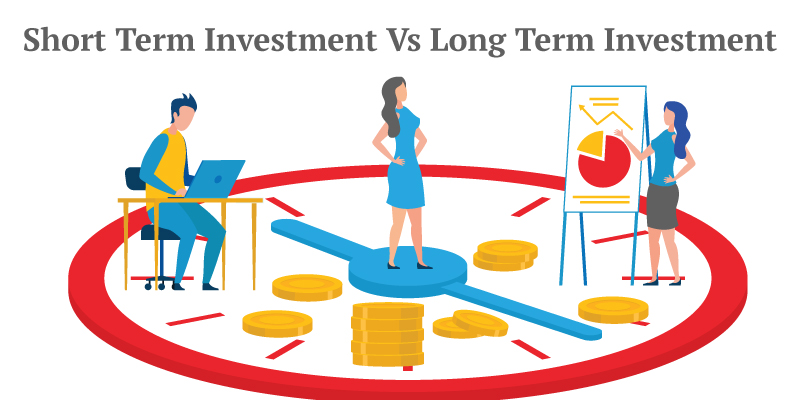When considering long-term investment options, it is important to carefully evaluate and select funds that are suitable for your specific financial goals and risk tolerance. Long-term investing involves holding onto investments for an extended period of time, typically five years or more, with the aim of achieving substantial growth and maximizing returns. While there are various types of funds available in the market, not all of them are well-suited for long-term investment strategies. In this article, we will discuss some key factors to consider when choosing funds for long-term investment and highlight a few types of funds that are generally considered suitable for this purpose.

One of the most important factors to consider when selecting funds for long-term investment is the fund's investment objective. Different funds have different investment objectives, such as growth, income, or a combination of both. It is crucial to align your investment goals with the fund's objective to ensure that they are compatible. For example, if your primary goal is to achieve capital appreciation over the long term, you may want to consider equity funds that invest in stocks of companies with strong growth potential. On the other hand, if you are seeking regular income, bond funds or dividend-focused funds may be more suitable.
Another important consideration is the fund's historical performance. While past performance does not guarantee future results, it can provide valuable insights into how the fund has performed in different market conditions. Look for funds that have consistently delivered positive returns over the long term and have outperformed their benchmark index or peers. However, it is essential to remember that past performance should not be the sole basis for selecting a fund. It should be considered in conjunction with other factors such as the fund's investment strategy, risk management practices, and the expertise of the fund manager.
Diversification is another crucial aspect to consider when choosing funds for long-term investment. Diversifying your portfolio by investing in a mix of asset classes can help reduce risk and potentially enhance returns. Look for funds that offer diversification across different sectors, industries, and geographies. For example, a global equity fund that invests in companies from different countries and regions can provide exposure to a wide range of opportunities and help mitigate risks associated with investing in a single market.
Costs and fees associated with investing in a fund can significantly impact your long-term returns. Therefore, it is important to carefully evaluate the expense ratio and other fees charged by the fund. The expense ratio represents the annual operating expenses of the fund as a percentage of its assets under management. Generally, lower expense ratios are preferable as they leave more of your investment returns in your pocket. Additionally, consider any transaction fees, redemption fees, or sales loads that may apply when buying or selling shares of the fund.
Furthermore, it is advisable to assess the fund manager's track record and experience. A skilled and experienced fund manager can play a crucial role in driving the fund's performance over the long term. Look for managers who have a proven track record of successfully managing funds through various market cycles and have demonstrated their ability to generate consistent returns while effectively managing risk.
While there are numerous types of funds available, some types are generally considered suitable for long-term investment strategies. These include:

1. Equity Funds: Equity funds invest primarily in stocks and offer the potential for high returns over the long term. They can be further classified into large-cap, mid-cap, or small-cap funds based on the size of the companies they invest in. Large-cap funds typically invest in well-established companies with stable earnings, while mid-cap and small-cap funds focus on smaller companies with higher growth potential.

2. Index Funds: Index funds aim to replicate the performance of a specific market index, such as the S&P 500. They offer broad market exposure and generally have lower expense ratios compared to actively managed funds. Index funds are suitable for investors who prefer a passive investment approach and want to capture the overall market returns.

3. Balanced Funds: Balanced funds, also known as asset allocation funds, invest in a mix of stocks and bonds. They aim to provide both capital appreciation and income while maintaining a balanced risk profile. Balanced funds can be an attractive option for investors seeking a diversified portfolio within a single fund.

4. Target-Date Funds: Target-date funds are designed for investors with a specific retirement date in mind. These funds automatically adjust their asset allocation over time, gradually shifting from a more aggressive growth-oriented strategy to a more conservative income-focused approach as the target date approaches. Target-date funds offer convenience and simplicity for investors looking for a hands-off approach to long-term investing.
In conclusion, selecting suitable funds for long-term investment requires careful consideration of various factors such as investment objectives, historical performance, diversification, costs, and fund manager expertise. While there are several types of funds available in the market, equity funds, index funds, balanced funds, and target-date funds are generally considered suitable options for long-term investment strategies. It is important to conduct thorough research and seek professional advice before making any investment decisions to ensure they align with your financial goals and risk tolerance.







